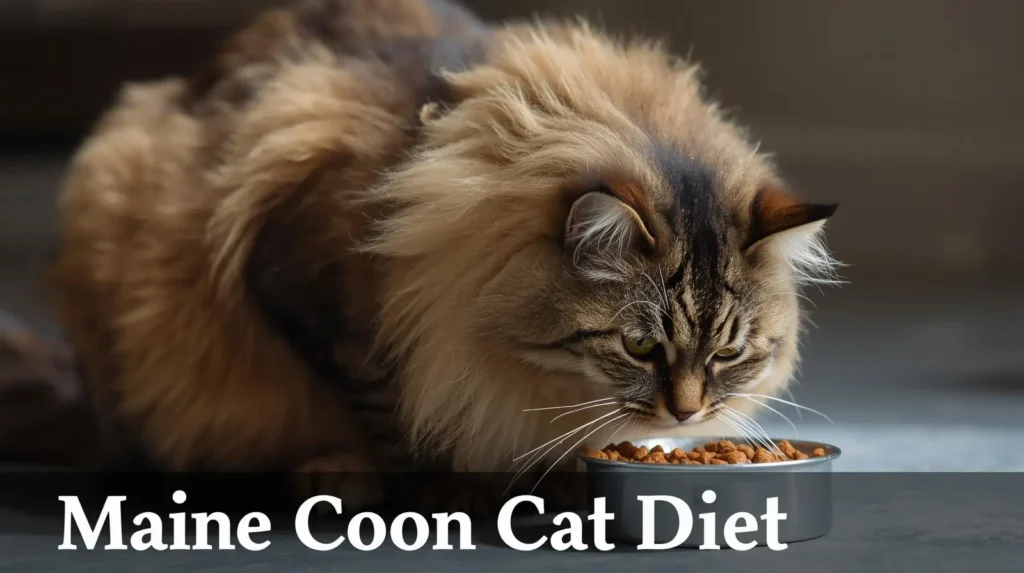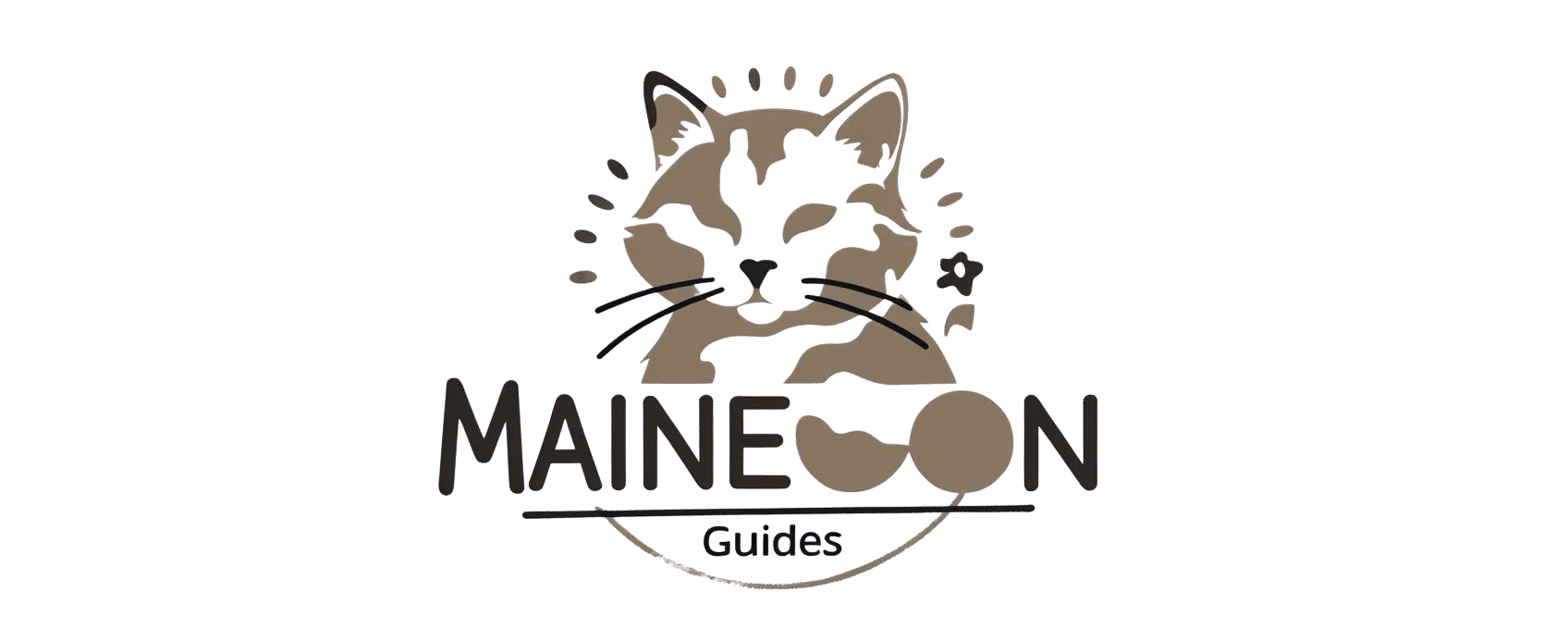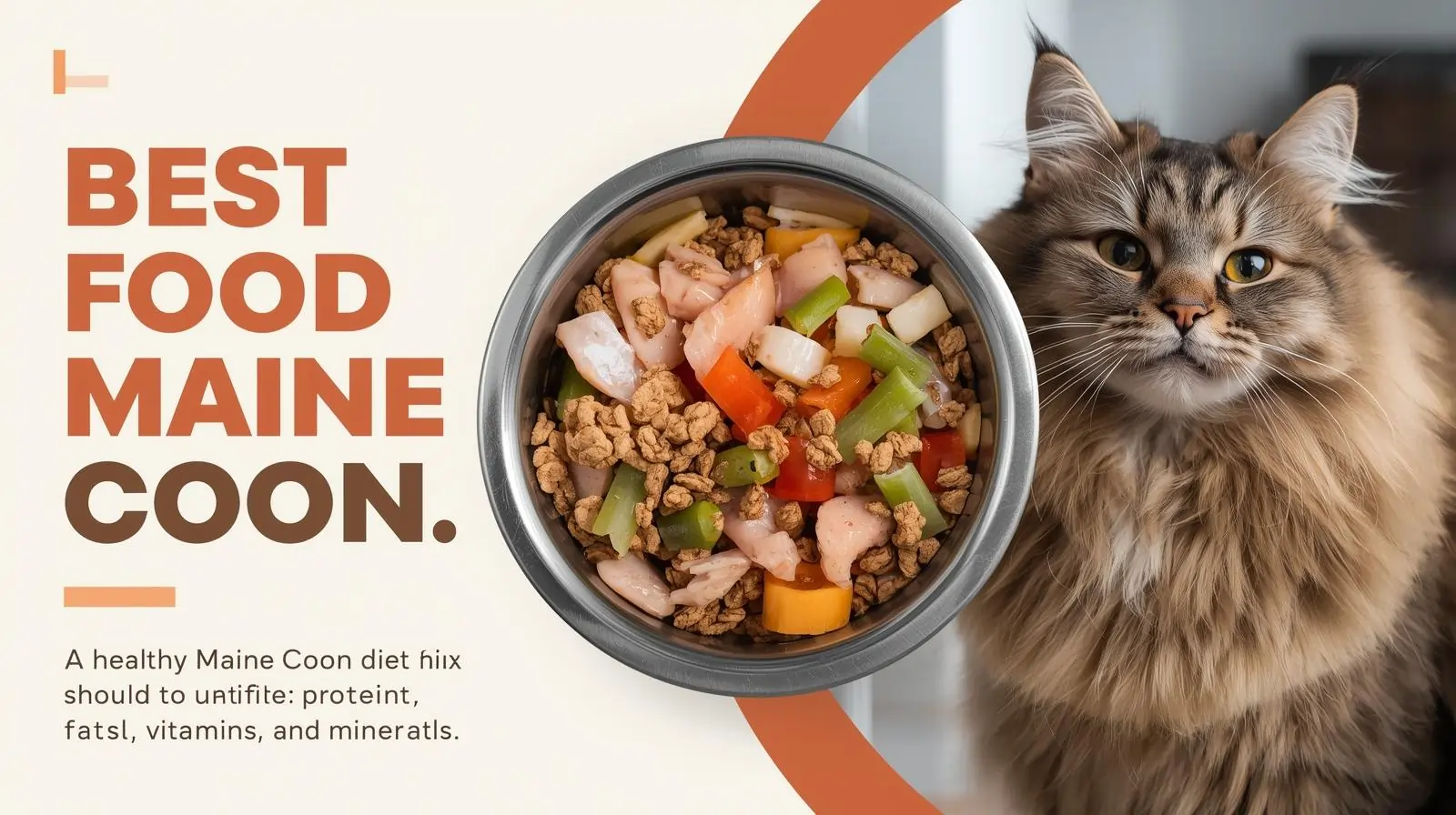Maine Coon Cat Diet: The Ultimate Nutrition Guide

Maine Coon cats, known as gentle giants of the feline world, require specialized nutrition to support their impressive size and unique characteristics. Understanding the proper maine coon cat diet is crucial for maintaining their health, supporting their thick coat, and ensuring they live long, vibrant lives. These magnificent cats can weigh between 10-25 pounds, making their dietary needs significantly different from average house cats.
The maine coon cat diet plays a fundamental role in preventing common health issues such as hip dysplasia, hypertrophic cardiomyopathy, and obesity. With their slower maturation rate, taking up to 4-5 years to reach full size, these cats need consistent, high-quality nutrition throughout their extended growth period.
Table of Contents
Understanding Maine Coon Nutritional Requirements
Protein: The Foundation of Maine Coon Cat Diet
Protein serves as the cornerstone of any effective maine coon cat diet. These large cats require approximately 26-30% protein content in their daily meals, significantly higher than many commercial cat foods provide. High-quality animal proteins such as chicken, turkey, fish, and beef should comprise the majority of their protein intake.
Research from the Association of American Feed Control Officials (AAFCO) indicates that adult cats need a minimum of 26% protein, but Maine Coons often benefit from higher percentages due to their size and muscle mass requirements. Dr. Jennifer Coates, veterinary advisor, states, Maine Coons need substantial protein to maintain their impressive muscle structure and support their active lifestyle.
The maine coon cat diet should include whole meat sources rather than meat by-products. Look for foods listing specific proteins like deboned chicken or salmon meal as the first ingredients.
Fat Content and Energy Needs
Maine Coons require moderate fat levels in their diet, typically ranging from 9-15%. Fat provides essential fatty acids that support their luxurious coat and provide concentrated energy for their large frames. Omega-3 and omega-6 fatty acids are particularly important for maintaining skin health and coat shine.
According to feline nutrition studies, Maine Coons burn approximately 20-25% more calories than average cats due to their size. An adult Maine Coon weighing 15 pounds typically requires 400-500 calories daily, though this varies based on activity level, age, and metabolism.
Age-Specific Maine Coon Cat Diet Guidelines
Kitten Nutrition (0-12 months)
Maine Coon kittens have extraordinary nutritional demands during their rapid growth phase. The maine coon cat diet for kittens should contain:
- 30-35% high-quality protein
- 15-20% fat content
- Higher calorie density (approximately 100 calories per pound of body weight)
- Essential vitamins and minerals for bone development
Veterinary nutritionist Dr. Sarah Johnson emphasizes, Maine Coon kittens should remain on kitten food longer than other breeds, often until 15-18 months, due to their extended growth period.
Adult Maine Coon Diet (1-7 years)
Adult Maine Coons require a carefully balanced maine coon cat diet that maintains their weight while supporting their active lifestyle. Key components include:
| Nutrient | Recommended Percentage | Daily Amount (15lb cat) |
|---|---|---|
| Protein | 26-30% | 65-75g |
| Fat | 9-15% | 22-37g |
| Carbohydrates | 5-10% | 12-25g |
| Fiber | 3-5% | 7-12g |
The maine coon cat diet should be divided into 2-3 meals daily to prevent overeating and reduce the risk of bloat, a condition that can affect large cats.
Senior Maine Coon Nutrition (7+ years)
Senior Maine Coons may require dietary adjustments to address age-related changes. The maine coon cat diet for seniors should emphasize:
- Easily digestible proteins
- Joint-supporting supplements like glucosamine
- Reduced calorie content if activity decreases
- Increased omega fatty acids for cognitive health
Common Dietary Challenges and Solutions
Weight Management
Obesity represents a significant concern in Maine Coon cats, with studies showing that 35-40% of indoor cats are overweight. The maine coon cat diet must be carefully monitored to prevent excessive weight gain, which can exacerbate joint problems and heart conditions.
Portion control strategies include:
- Measuring food portions precisely
- Using puzzle feeders to slow eating
- Monitoring body condition score monthly
- Adjusting portions based on activity level
Food Allergies and Sensitivities
Some Maine Coons develop food sensitivities, particularly to common allergens like chicken, beef, or grains. Signs of food allergies include digestive upset, skin irritation, and excessive scratching. The maine coon cat diet may need modification to exclude problematic ingredients.
Dr. Michael Peterson, feline specialist, notes, Limited ingredient diets can help identify and manage food allergies in Maine Coons, though this should always be done under veterinary guidance.
Feeding Schedule and Portion Control
Optimal Feeding Frequency
The maine coon cat diet should follow a structured feeding schedule to maintain stable blood sugar levels and prevent overeating. Recommended feeding frequencies include:
- Kittens (8-16 weeks): 4 meals daily
- Young adults (4 months-2 years): 3 meals daily
- Adults (2-7 years): 2 meals daily
- Seniors (7+ years): 2-3 smaller meals daily
Portion Size Guidelines
Determining appropriate portions for the maine coon cat diet requires considering multiple factors:
| Cat Weight | Daily Calories | Dry Food Amount | Wet Food Amount |
|---|---|---|---|
| 10-12 lbs | 300-350 | 3/4-1 cup | 1.5-2 cans |
| 13-16 lbs | 400-480 | 1-1.25 cups | 2-2.5 cans |
| 17-20 lbs | 500-600 | 1.25-1.5 cups | 2.5-3 cans |
| 21+ lbs | 600-700 | 1.5-1.75 cups | 3-3.5 cans |
Hydration and Water Requirements
Maine Coons require substantial water intake, approximately 3.5-4.5 ounces per 5 pounds of body weight daily. The maine coon cat diet should incorporate both wet and dry foods to ensure adequate hydration. Many Maine Coons prefer fresh, flowing water sources, making water fountains excellent investments.
Proper hydration supports kidney function, aids digestion, and helps prevent urinary tract issues common in large cat breeds.
Special Dietary Considerations
Raw Diet Considerations
Some Maine Coon owners consider raw diets as part of their maine coon cat diet strategy. While raw diets can provide excellent nutrition, they require careful planning to ensure nutritional completeness and food safety. Consultation with a veterinary nutritionist is essential before implementing raw feeding.
Supplement Requirements
Most high-quality commercial foods provide complete nutrition for the maine coon cat diet. However, some cats may benefit from targeted supplements:
- Omega-3 fatty acids for coat health
- Glucosamine for joint support
- Probiotics for digestive health
- Taurine for heart health (though this should be adequate in quality cat foods)
As noted by the Mainecoon Guides resource center, supplement decisions should always involve veterinary consultation to avoid over-supplementation. You can also use our Cat Calorie Calculator to determine the right nutrition for your cat.
Transitioning Between Foods
When changing the maine coon cat diet, gradual transitions prevent digestive upset. The recommended transition schedule spans 7-10 days:
- Days 1-2: 75% old food, 25% new food
- Days 3-4: 50% old food, 50% new food
- Days 5-6: 25% old food, 75% new food
- Days 7+: 100% new food
Monitor for any digestive issues during transitions and extend the timeline if necessary.
Conclusion
The maine coon cat diet requires careful attention to protein quality, appropriate portion sizes, and life-stage specific nutritional needs. By focusing on high-quality ingredients, proper feeding schedules, and regular monitoring, Maine Coon owners can support their cats’ health throughout their lives. Remember that individual cats may have unique dietary requirements, and regular veterinary consultations ensure optimal nutrition. The investment in proper nutrition pays dividends in longevity, coat quality, and overall vitality. According to the AAFCO guidelines, maintaining consistent, high-quality nutrition forms the foundation of feline health. As you develop your Maine Coon’s dietary plan, remember that every cat is unique, and what works best may require some experimentation and professional guidance – but isn’t your gentle giant worth the effort to find their perfect nutritional balance?

